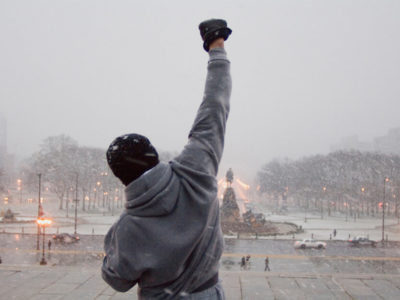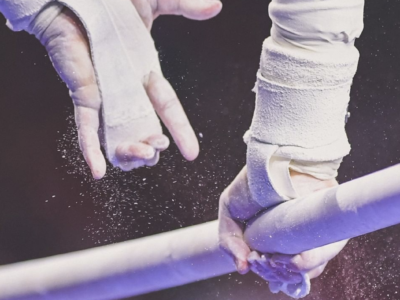The harsh blaring of my alarm at six-thirty in the morning jolts me awake and I desperately fumble with my phone in hopes that I shut it off before the noise wakes my sleeping roommate. I want to tell myself to rest for five more minutes, but I set my alarm to the latest time without the possibility that I could be late for my morning workout. I groan thinking about my grueling tennis schedule for the day. Lift workout followed by running and ending with an afternoon practice. Today will not be so bad though; the weather shows no rain, no snow and no sleet. I rush down to Conte Forum, Boston College’s athletic gym and sit down next to my teammates, all of us groggy and quiet.
My left wrist still aches from the surgery I underwent a few months prior.
After tearing my ECU tendon during the ACC conference tournament, I took time off hoping that the tendon will naturally heal itself. A few months later and no progress, I decided to schedule the surgery and take the entire fall season off from tennis to recover. This meant no matches and limited practices. Taking time off also created immense tension between me and my teammates. I no longer practiced and I did not complete exercises in our workouts. My teammates thought I put in little effort and showed no interest, but really, I felt deeply upset about awkward team tension and being scared of reinjuring my wrist. These issues came at the worst time, considering just the year prior, as a freshman, I severely underperformed.
Coming into college as a top-ranked junior, I knew about the tough competition. However, I did not feel prepared for the demanding and strenuous schedule, nor did I expect to lose all confidence in my game. I always thought that players improve in college because they immerse themselves in stronger competition and athletes sense the support of their teammates. Despite the partial truth behind those facts, I learned a lot more about my own tennis game, the role of teammates and college athletics than I anticipated.
I remember during my first few matches I felt so nervous that I barely swung through a shot.
I knew my coaches judged the new recruits, determining where they could be placed on the lineup. I never experienced pressure like that before. I wished so badly I can time travel and go back to being twelve, fearless without any nerves or outside factors affecting my game. However, obviously this seemed impossible. I played for something much larger than myself now; I played for my coaches, teammates and a university. I felt that a tremendous pressure for me to win, not just to compete. I never faced this feeling before, and in return, I experienced damaging effects on my self-confidence.
Unlike team sports, tennis is an individual sport and doesn’t require one to rely on others to win. This is one of my favorite aspects of tennis. However, my injuries and the pressure of playing on a team stripped that away. Instead, tennis became a team sport. A team sport where I relied on and played for others than just myself. I knew this going into college, and although I felt initially excited about it, the actual experience differed from what I anticipated.
I went from loving challenging matches and tournaments to me feeling nervous to play a simple challenge match in practice.
The fear of losing a match will impact my chances of making the line-up and I felt like I needed to prove something. Especially after surgery, I wanted to show my coaches and teammates that I did not take my recovery lightly. Even though playing college tennis was an experience I didn’t expect, I learned to adapt and change my mentality. Sports rarely have negative connotations but for a hot moment, tennis was one of my bleakest memories. Despite that, even after my injury, I am growing to love competing in a different environment and sharing every moment with my teammates.



















